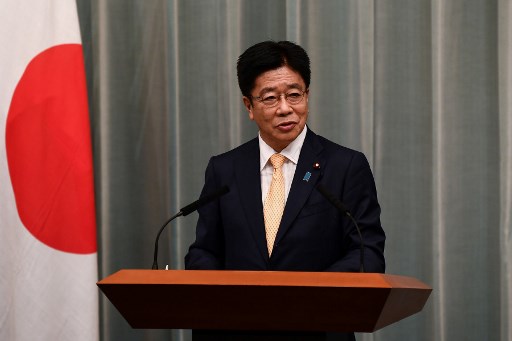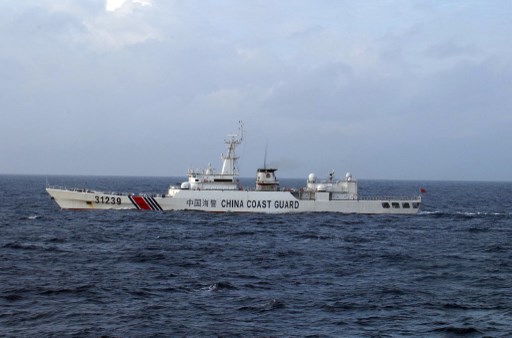
TOKYO, Japan (AFP) — Japan said Monday it has protested to China over two incursions into Japanese territorial waters that come after Beijing enacted legislation toughening its response to violations of its maritime territory.
Japan and China dispute ownership of the uninhabited islets in the East China Sea that Tokyo calls the Senkakus and Beijing the Diaoyu.
The rocky islets are administered by Tokyo, which has regularly protested what it calls the violation of its territory by Chinese vessels.
The latest row comes amid heightened tensions after China enacted legislation allowing its coast guard to use weapons against foreign ships that Beijing sees as illegally entering its waters.
Japanese government spokesman Katsunobu Kato said Tokyo had protested after two Chinese coast guard ships entered waters off the Senkaku islands on Saturday and Sunday
“We made a strong protest through diplomatic routes both in Tokyo and Beijing, strongly demanding that they immediately stop their moves to try to approach Japanese fishing vessels, and that they swiftly leave the territorial waters,” Kato said.
He said Japan’s coast guard ships “repeatedly demanded they leave, while ensuring safety of fishing vessels”.
“Japan can never tolerate” such moves, Kato added.
Chinese coast guard vessels have regularly been sent around the disputed islands, especially under the leadership of President Xi Jinping who wants to make the country a maritime power.
Last year, Chinese ships were confirmed in the contiguous zone of the islets for a total of 333 days, an all-time high.
Aside from the territorial row with Japan, Beijing claims almost the entire South China Sea despite competing partial claims from Brunei, Malaysia, the Philippines, Taiwan and Vietnam.
It has ignored a 2016 international tribunal ruling that declared its assertion as without basis.

Analysts say China’s communist rulers are making waves in the Pacific as they extend their naval strength and reach while Japan and the Philippines bolster their own fleets, increasing the risk of a maritime conflict.
© Agence France-Presse







